If you awakened to a Grindr ban, it’s as if the bouncer shut the door but your coat is still in there. This is not a guide to sneaking in the side door. It’s about walking back through the front door — ethically, cleanly, and with your best shot at winning. You will learn how to understand why bans occur, prepare a sharp, evidence-based appeal, and reestablish trust upon being reinstated. Consider this your Clean Slate Plan: an uncomplicated, step-by-step strategy that abides by the rules and gives you the best chance.
Why Bans Occur And What Is In Your Control
Grindr, like many platforms, employs a combination of community reports, automated systems, and trust-and-safety reviews to moderate content. Bans can be triggered by content that breaks the rules, behavior from an account that seems risky, or evidence of a hijacked account. You have two powerful levers: what you post and how you talk to support.
- Why Bans Occur And What Is In Your Control
- Signals in content that often lead to bans
- Behavioral patterns that increase risk
- When security reduces to lockout triggers
- The Clean Slate Plan: Steps to Appeal and Get Reinstated
- Step 1: Rebuild Your Timeline
- Step 2: Compile a Proof Packet
- Step 3: Write a Six-Sentence Appeal
- Step 4: Submit Once, Then Pace Your Follow-up
- If You Broke A Rule Don’t Explain (Own It And Adjust)
- If Your Account Was Compromised: What to Include in Appeals
- Rebuilding Trust After Reinstatement: First 72 Hours
- Avoid Ban Evasion Mistakes That Can Worsen Your Situation
- Use The SANE Method For Every Communication
- Set Realistic Expectations for Appeals and Outcomes
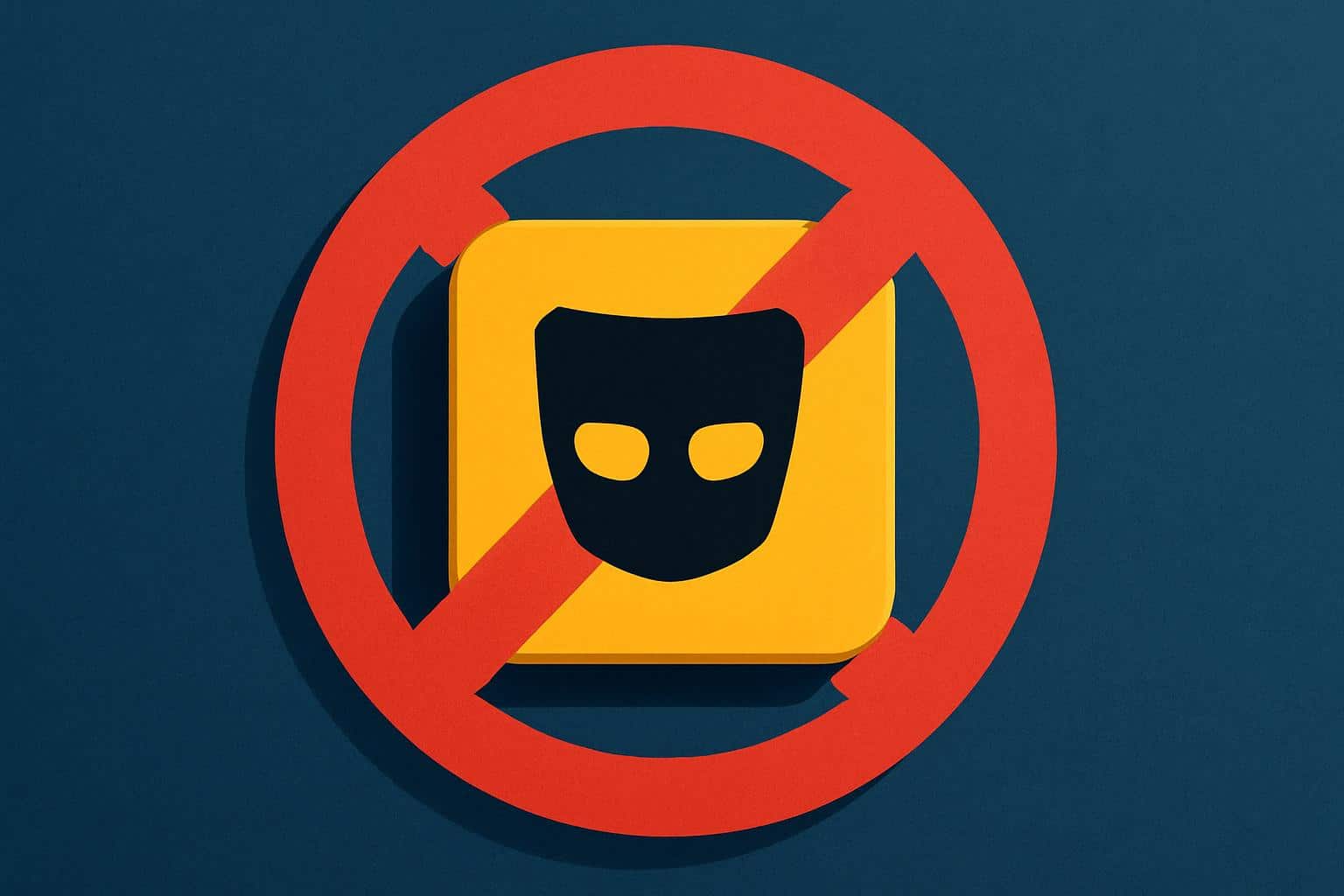
Signals in content that often lead to bans
The most common reason for bans and removals is crossing lines between the profile photo and bio. Photos depicting explicit nudity, text referencing minors, or services that are prohibited can all be reported quickly. And even if your motivation is benign, borderline content can be subject to interpretation by reviewers or automated filters.
Behavioral patterns that increase risk
Mass copy-paste messaging, sending rapid-fire taps, and sending the same off-platform contact info to many users do seem like spam. So does offering things in return for something else. Risk levels increase if you are reported by more than one person too fast, even for mistakes, and will rise while the account is reviewed.
When security reduces to lockout triggers
Strange login attempts, abrupt changes to email or phone, and back-and-forth activity from disparate locations can resemble a takeover. If a bad actor uses your account to blast out adverse content, you can be banned even if the gist was unintended. If they happened, then your appeal should mention these signs.
The Clean Slate Plan: Steps to Appeal and Get Reinstated
It breaks down into four moves: reconstruct the timeline, assemble a proof packet, write a tight appeal, and pace your follow-up. The idea is to reduce friction for the reviewer and show you are aware of community standards.
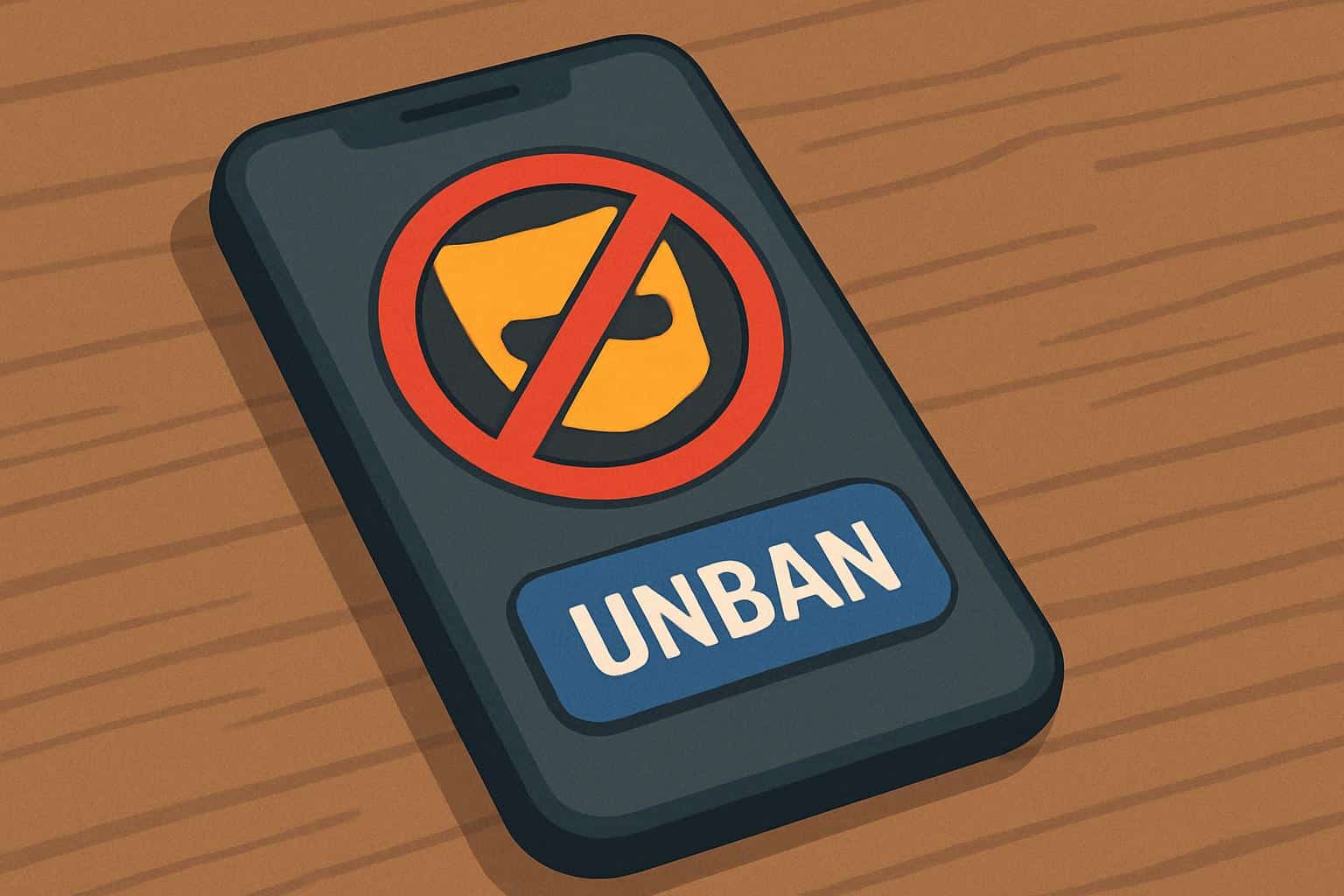
Step 1: Rebuild Your Timeline
Use a 24-hour Backcast. Spend five minutes listing what happened between when the ban was announced yesterday and when you first noticed it. Keep track of any changes to your account content, photo uploads, links you have shared, and any odd messages received. If somebody “threatened to report you,” add that as well. This little timeline helps you tease apart what is assumed and what you have evidence for, and provides something very tangible to review.
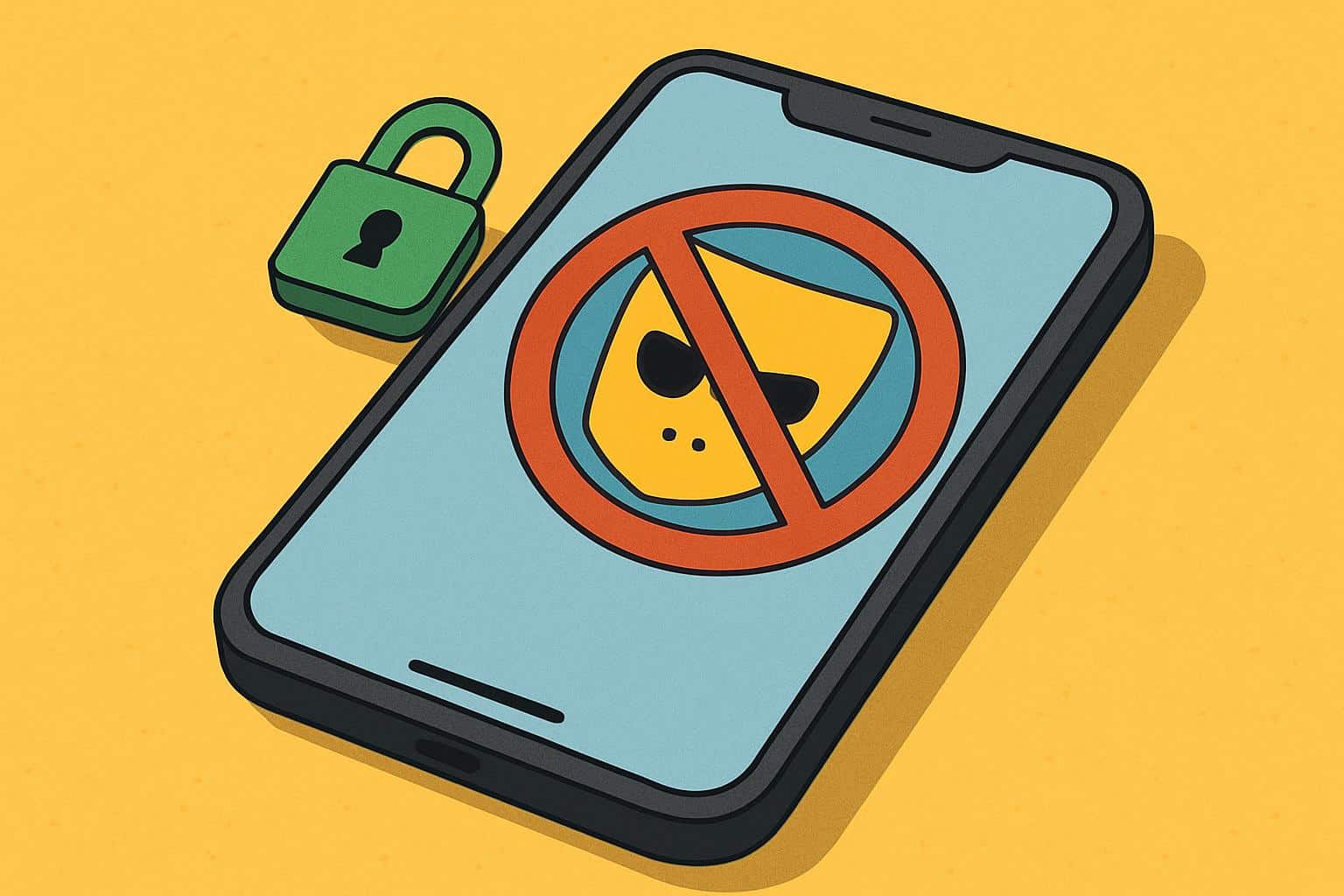
- The text and picture of your last profile edit
- Discussions that suddenly cut off or heated up
- Messages with contact info or advertising
- Messages that you did not send, or have not opened
Step 2: Compile a Proof Packet
A proof packet reduces back-and-forth. You’re not asking for support to be overwhelmed; you’re making it easy to confirm that that’s who and where you are. Keep it factual and concise. Don’t provide sensitive government IDs unless they ask for them over secure means of communication.
- Your account phone or email and your display name
- Your previous city or area and an estimated date of your last successful login
- A brief description of the last activities you did before the ban (“Updated bio,” “replied to three messages”)
- Screenshots of your profile and conversations that you suspect were reported (crop to show only what’s necessary)
- If you suspect a takeover, record when you noticed unauthorized messages or password changes
Step 3: Write a Six-Sentence Appeal
Long messages bury key facts. Use this six-sentence format to prevent your appeal from becoming unreadable for a rushed reviewer. It’s neutral, specific, and proof-oriented.
- Sentence 1: Mention your account by email, phone, or display name.
- Sentence 2: Explain that your account seems to be banned and when you first noticed.
- Sentence 3: Offer a brief history of recent activities.
- Sentence 4: Describe the potential misunderstanding or security problem without arguing about intent.
- Sentence 5: Acknowledge understanding of community standards and describe one or two changes you will make.
- Sentence 6: Respectfully ask for a review and thank the team for their time.
Tone example: “I think my profile photo may have been borderline, and I will substitute a normal headshot and keep my bio free of innuendo.” Promises alone won’t win forgiveness; specific, measurable changes signal that you’re not asking for a pass — you’re showing concrete plans.
Step 4: Submit Once, Then Pace Your Follow-up
Multiple tickets can cause slowdowns in PII review. Mail one full appeal with your packet of evidence and stop there. If you don’t receive a response in a reasonable time frame, follow up with a brief note referring to your first. Maintain a dispassionate tone — stick to the facts, not the feelings. Patience is a sign of maturity, and it helps support help you.
If You Broke A Rule Don’t Explain (Own It And Adjust)
Honest mistakes happen. It can help if you own them swiftly rather than double down on your version of events. The thing is to show that you understand what crossed the line and how you’re going to put it right. You’re better off setting specific, measurable goals — not vague, easy pronouncements.
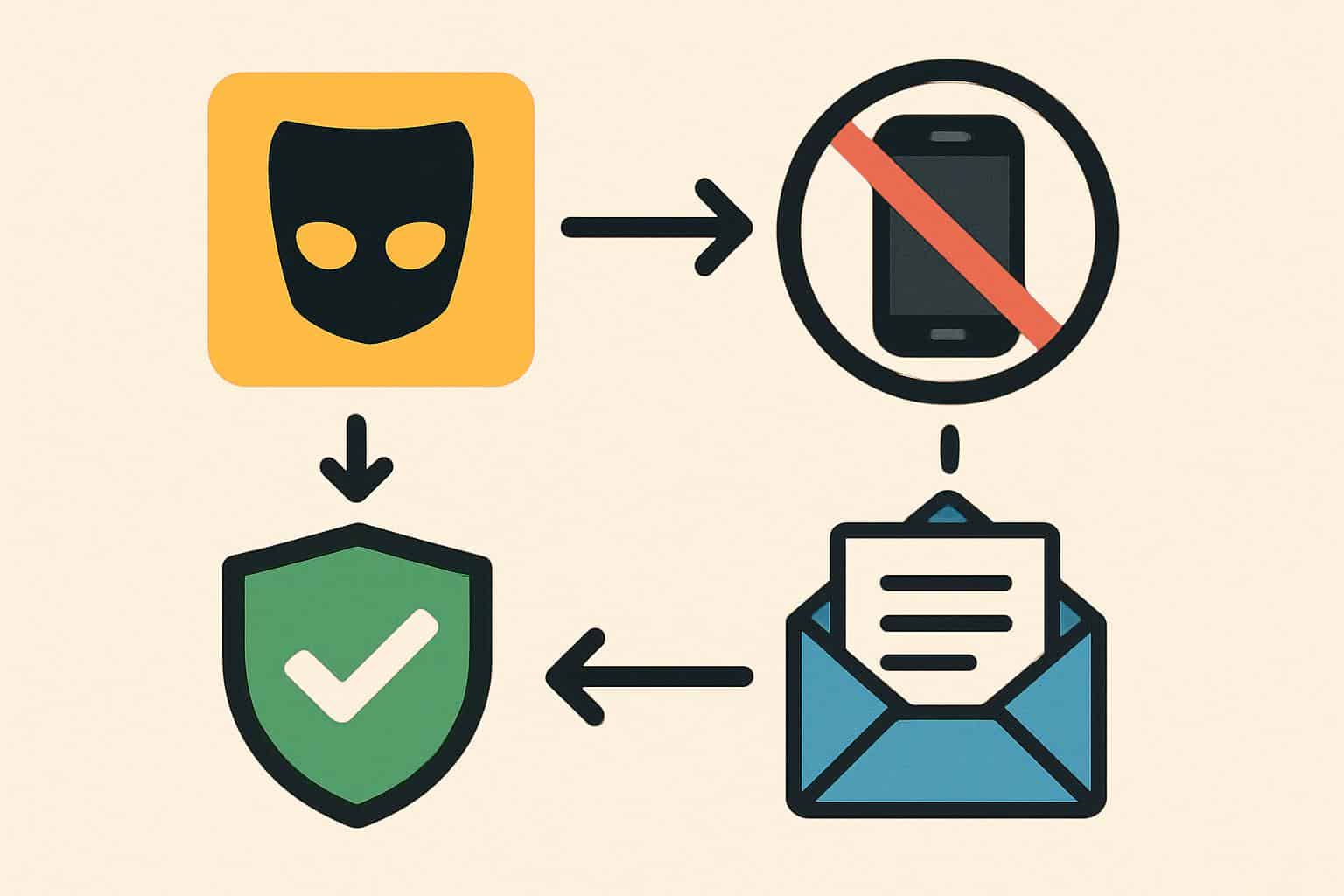
- If a photo was too racy: promise a clothed, waist-up headshot.
- If your bio suggested prohibited services: replace it with interests or conversation starters.
- If you exchanged contact information multiple times: have your first conversations on the platform and share them later, one-on-one.
- If it became too intense: use a brief closing line, like “Not a match, take care.”
Match the change with a justification in your appeal: “I get why my previous photo could be misread and will use a neutral portrait going forward.” It reduces the onus on the reviewer to trust you again.
If Your Account Was Compromised: What to Include in Appeals
Hijackings are more common than many people realize. Indications include messages you received while offline, sudden logouts, or changes in your profile that you did not make. Your appeal should mention these things without speculating as to how it occurred.
- Explain when you last checked in and what was altered (bio, photo, messages).
- Tell them you’ve locked down your email and other connected accounts, and will enable stronger authentication where it’s possible.
- Request a review of recent activity if misuse is found.
If the ban is revoked, check connected email and apps. A good foundation can help ensure such an incident won’t happen again.
Rebuilding Trust After Reinstatement: First 72 Hours
The first 72 hours back on board are critical. Think of it as a period of probation when your actions will carry more weight than your attraction. Err on the side of caution, and avoid anything that appears automated or aggressive.
- Spruce up your profile with good, clear, compliant photos and a clutter-free, upbeat bio.
- Send a couple of messages — short, personalized ones; no mass greetings or copy-paste intros.
- Stay away from sharing contact info from the outside world unless you have had a good conversation.
- Speak calmly and walk away from altercations. Silence is better than snark.
As Sarah Wilson, a professor of social and behavioral sciences at Arizona State University’s College of Health Solutions, recently put it, think of all this as showing that you’re low-risk and community-minded. Now it’s your opportunity to move yourself from “edge case” to “model user.”
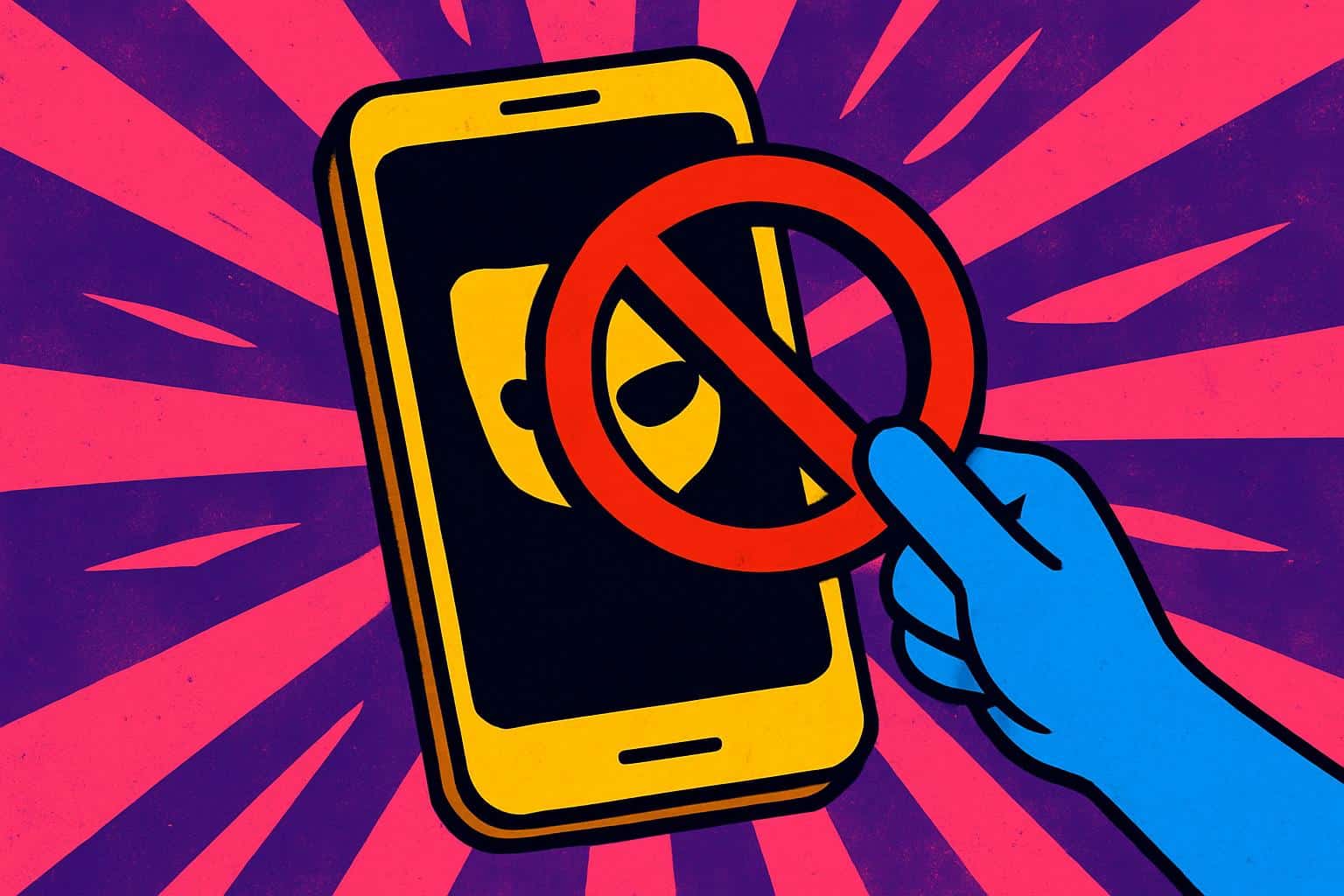
Avoid Ban Evasion Mistakes That Can Worsen Your Situation
Attempting to sneak back on by creating new accounts or circumventing systems can result in longer-term or permanent consequences. It can also reduce the likelihood of a fair review later. The Clean Slate Plan is about one thing: transparency — you fix the underlying problem, present transparent evidence, and let support do their job. That way is more sustainable and respectful of the community you want to be a part of.
Use The SANE Method For Every Communication
When you’re writing to support — or to other users, for that matter — adhere to the SANE model. It allows you to be clear, respectful, and effective.
- Specific: Indicate the account, date, and precise actions you have taken.
- Responsible: Take responsibility for your part without overexplaining intent.
- Neutral: Keep tone even, steer away from blaming or sarcasm.
- Evidence-Based: If necessary, include brief screenshots or timestamps.
The SANE approach makes your appeal easier to read and faster to approve if the ban was in error — or more forgivable if you actually screwed up.
Set Realistic Expectations for Appeals and Outcomes
No appeal is guaranteed. Outcomes generally fall into three buckets: a reinstatement, a decision to maintain the ban, or a request for additional information. If you’re reinstated, back up a few steps. If you get a question, answer only what’s asked, clearly. If you can’t obtain it, then don’t, and if the ban remains in place, take disappointment like a champ. Repeatedly requesting support or trying to bypass restrictions usually slams doors shut.
The Clean Slate Plan is intentionally simple. Reconstruct the facts, file a single focused appeal, and model what behavior you’d like to be judged by. That’s the surest way to get unbanned from Grindr — and to stay welcome when you’re back.

